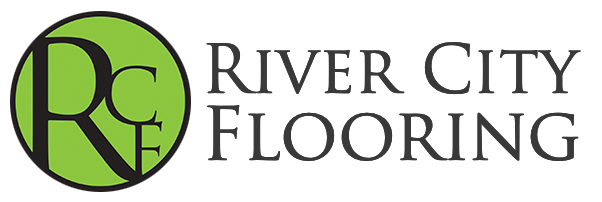
Choosing new flooring is one of the most important decisions you’ll make when updating your home. Your floors need to look amazing, hold up to daily wear, and match your budget—and that’s where the debate begins: Luxury Vinyl Plank (LVP) or Engineered Hardwood?
At River City Flooring, we’ve helped countless San Antonio homeowners navigate this exact question. Below, we break down everything you need to know to decide which flooring option is best for your home.
What Is Luxury Vinyl Plank (LVP)?
LVP is a high-performance, synthetic flooring that closely mimics the appearance of real wood. Its multi-layer construction includes a durable wear layer, a realistic printed wood design, and a waterproof core, making it one of the most popular choices for homes today.
Pros of LVP:
- 100% Water-Resistant: Perfect for humid spots like kitchens, bathrooms, and basements.
- Kid & Pet-Friendly: Built to resist scratches, dents, and spills.
- Budget-Friendly: Offers the look of hardwood without the premium price tag.
- DIY-Friendly Installation: Most LVP uses click-lock systems, making it ideal for weekend warriors.
- Low Maintenance: Just sweep and mop occasionally—no special treatments needed.
- Soft & Quiet Underfoot: Floating installation absorbs sound and feels softer than real wood.
Cons of LVP:
- Not Real Wood: It looks great, but it lacks the depth and warmth of authentic hardwood.
- Lower Resale Value: Adds less to your home’s value compared to real wood.
- Can Feel Less Luxurious: Some homeowners prefer the weight and feel of a nailed-down floor.
- Sunlight Sensitivity: Prolonged UV exposure may cause fading.
- Challenging Repairs: Replacing one plank often requires careful cutting and gluing.
What Is Engineered Hardwood?
Engineered hardwood combines the beauty of a real wood surface with the strength of a layered plywood core. It’s more stable than solid hardwood and can be installed over concrete, making it ideal for many San Antonio homes.
Pros of Engineered Hardwood:
- Real Hardwood Surface: It’s the real deal, with the texture and character you expect from wood.
- Boosts Home Value: A long-term investment that pays off in both style and resale appeal.
- Greater Stability: Resists warping and movement better than solid hardwood—perfect for Texas humidity.
- Premium Feel: A fully glued installation provides a solid, grounded feel.
- Tons of Variety: Choose from different wood species, finishes, and plank sizes.
- Easy to Repair: Individual boards can be swapped out or refinished without redoing the entire floor.
Cons of Engineered Hardwood:
- More Costly: Higher price than LVP, though still cheaper than traditional hardwood.
- Less Water Resistance: Can withstand humidity, but standing water is still a concern.
- Professional Installation Recommended: Not ideal for DIY installs—hiring a pro is best.
Quick Comparison Table
| Feature | Luxury Vinyl Plank (LVP) | Engineered Hardwood |
| Material | Synthetic | Real wood veneer |
| Water Resistance | Excellent | Moderate |
| Scratch Resistance | High | Moderate |
| DIY-Friendly | Yes | No (Professional recommended) |
| Look & Feel | Wood-like | Authentic wood |
| Budget | More Affordable | Higher Investment |
| Resale Value | Moderate | High |
Which Flooring Should You Choose?
Go with LVP if:
- You need waterproof floors for high-moisture areas.
- You have pets or children and need durability.
- You want an affordable, low-maintenance option.
- You prefer a quick and easy DIY install.
Choose Engineered Hardwood if:
- You want the beauty and value of real wood.
- You’re planning to stay in your home long-term.
- You want flooring that adds prestige and resale appeal.
- You’re investing in a premium design experience.
Visit River City Flooring in San Antonio for the Best of Both Worlds
Whether you’re leaning toward Luxury Vinyl Plank for its resilience or Engineered Hardwood for its authenticity, River City Flooring offers top-quality options at unbeatable prices. We’ll help you compare samples side-by-side so you can make the best decision for your lifestyle, design goals, and budget.
🛒 Stop by our San Antonio showroom today to explore our full flooring collection.
📞 Call us at (210) 593-3358 to book a FREE consultation with one of our experts.
🌐 Learn more online: www.rcfhardwoods.com
FAQs About LVP vs. Engineered Hardwood
1. Is engineered hardwood better than vinyl?
It depends. Engineered wood offers real wood appeal and value, while LVP offers greater moisture resistance and affordability.
2. Can engineered hardwood be refinished?
Yes—some types can be lightly sanded and refinished, depending on the thickness of the veneer.
3. Is LVP good for San Antonio’s climate?
Absolutely! It handles humidity and moisture very well, especially in kitchens and basements.
4. What’s the most pet-friendly flooring?
LVP is typically better for pets thanks to its scratch and water resistance.
5. How long does each flooring type last?
LVP can last 10–20 years; engineered hardwood can last 20–30+ years with good care.
6. Which floor is easier to maintain?
LVP requires less day-to-day care and is more resistant to water damage.
